Description
“There’s a fearlessness in the poems of Anne Pitkin’s But Still, Music. The poems span childhood, adulthood and everything in between: growing up in the Jim Crow south, marriage, divorce, the lifelong sorrow over a daughter’s passing, travel to distant lands, and the quiet glory of the natural world. Nothing is off limits, and that’s part of the bravery of this collection. Pitkin’s poems are both emotionally charged and restrained, the notes exact as a just-tuned piano. There’s evidence of musicality throughout, as in this sonorous line, “Cicadas sawed gritty fiddles,” from a poem called “Ghost Stories.” Pitkin’s book is full of such surprises, including occasional moments of mordant humor and deeply earned revelations. Pitkin’s book is just the sort of music we need, now more than ever.” —Ed Harkness, The Law of the Unforeseen & Beautiful Passing Lives
Full of warnings, arguments, and reckonings, Anne Pitkin’s But, Still Music attempts to move beyond a mindset “pretend[ing] all is well,” whether in home, community, nation, or world. Instead, she takes us, like an adventurer, into the various landscapes of “this blessed chaos” where we find no Keatsian nightingale, only a mockingbird “arguing in many voices.” “It’s a long story,” she admits, how we eventually come to understand the past; how, in time, we see through perspectives not our own; and how we find mercy, acceptance, perhaps even redemption, as we move farther and more truthfully “into our broken-open world.” —Jeff Hardin, Watermark and A Clearing Space in the Middle of Being
Anne Pitkin’s new book But Still, Music is a lyrical, moving symphony to loss, betrayal, illness, and all the myriad and sundry accidentals of this life on earth. Pitkin moves the reader with her adept and polished verses. She takes us from a southern childhood and on through adolescence, into motherhood, and beyond, into the northern latitudes. While all the seasons of earth and life are treated magnanimously in Pitkin’s collection, winter holds an especial fascination. For this reader, certain hallmark lines will never be forgotten. They speak, as do many other pure moments of witness, to the beauty of the ordinary transformed into the holy: “…alders reached into the early evening sky…/Reached above the traffic, the walkers, the lit shops, into the no-nonsense emptiness/ “where beauty offers no meaning, breaks no vows.” (“The Bare Trees,” 50) But Still, Music is a must read. —Judith Skillman, House of Burnt Offerings
ANNE PITKIN grew up in the South, Clarksville, TN, when it was still a small town. She attended Vanderbilt University when the Civil Rights Movement was getting underway. She graduated just after Bloody Sunday, the march across the Edmund Pettus Bridge. Some of the poems in this collection are about growing up as a privileged white child in the segregated South. Anne moved to Bellingham, WA when she married and subsequently to Seattle, where she has lived ever since. She has two grown children and two grandchildren. Their mother, her eldest, died three years ago. Many of the poems here address that loss. Anne is a retired community college English instructor. She went back to school and became a psychotherapist, sometimes practicing while still teaching. She is retired from both now. She plays jazz piano with her friends, pandemic permitting. She currently lives with her two dogs, Riley, an oversized Pomeranian and Klaus, a mini dachshund. This is her third full length collection, preceded by YELLOW and WINTER ARGUMENTS, and a chapbook NOTES FOR CONTINUING THE PERFORMANCE. Her poems have appeared in Poetry Chicago, Prairie Schooner, Alaska Quarterly Review, One, New Orleans Review, New England Review, Rattle and many others.
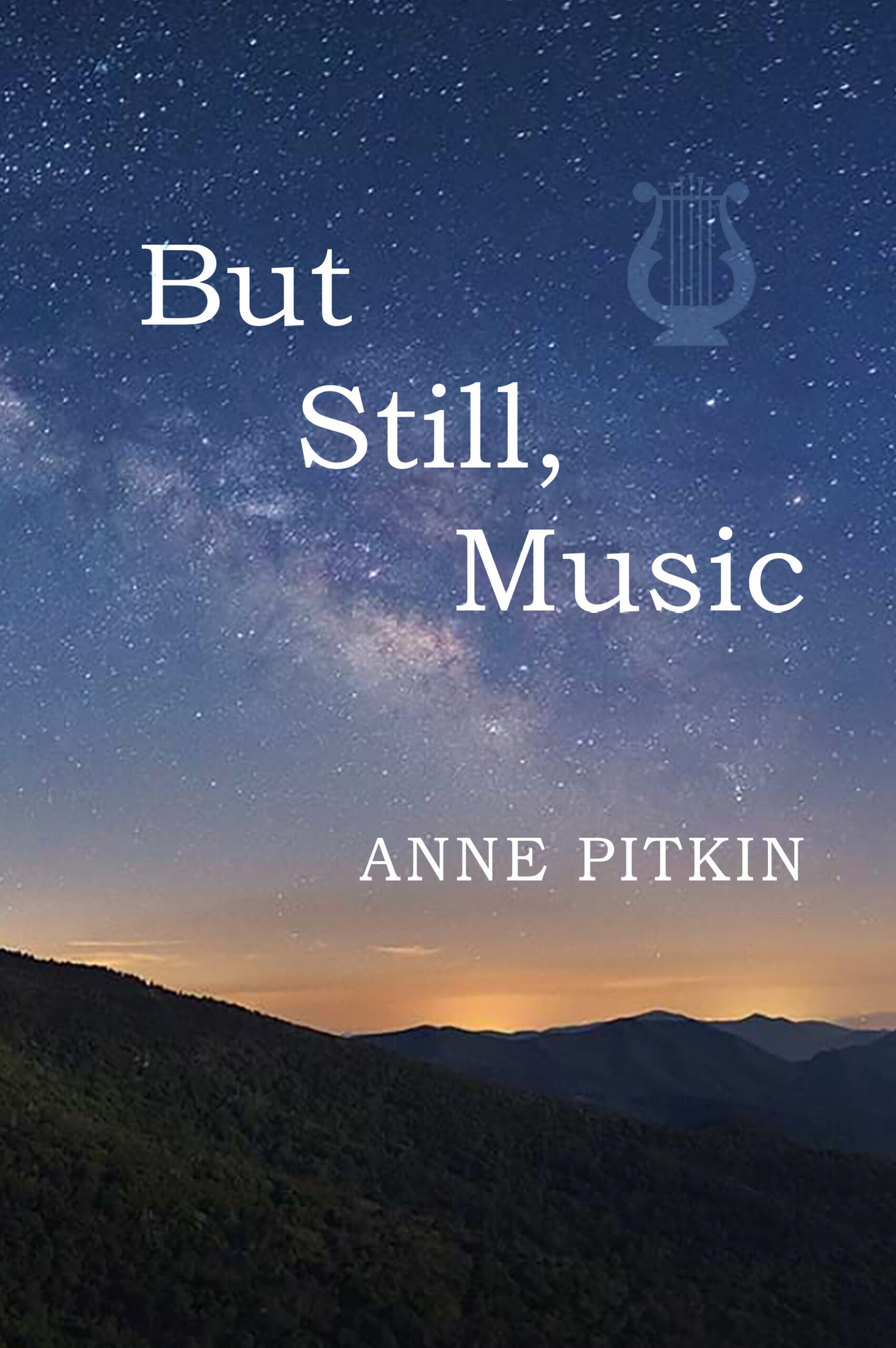
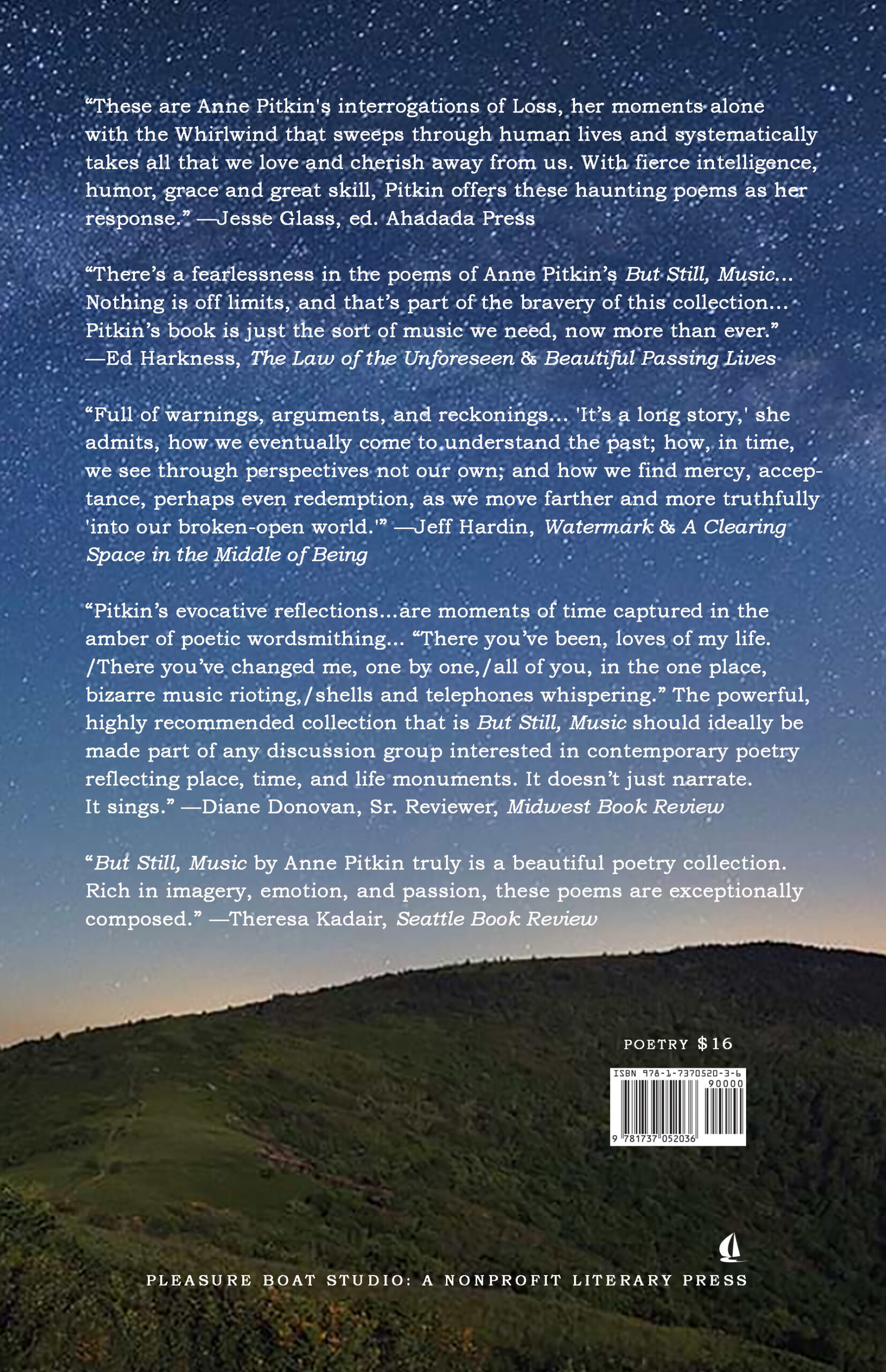
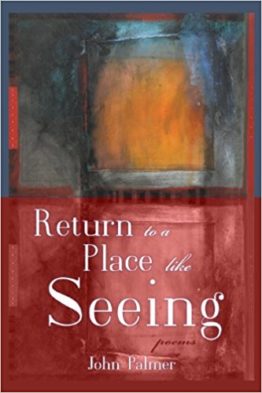
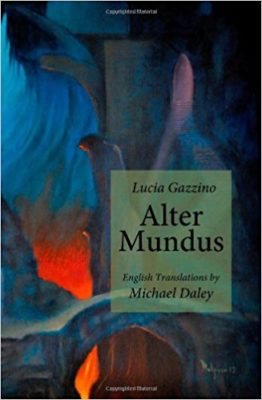
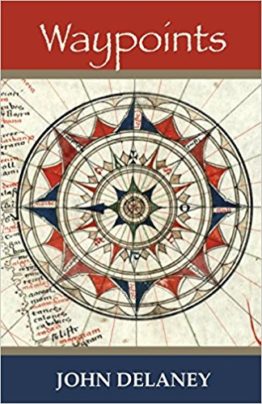
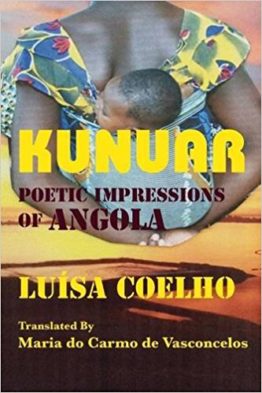

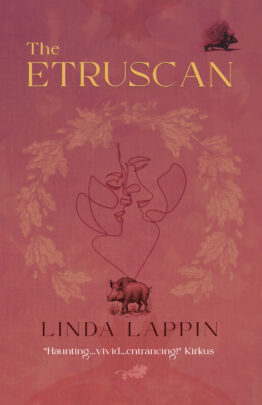

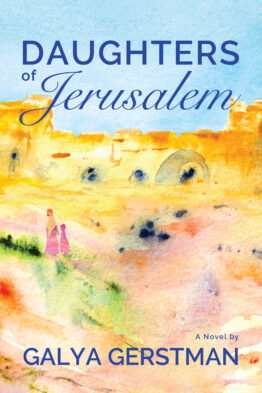
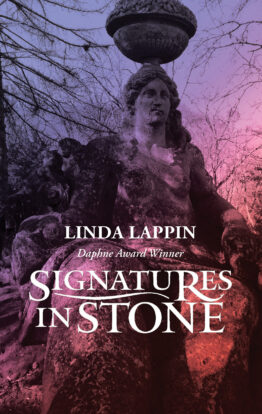
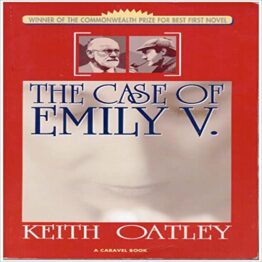
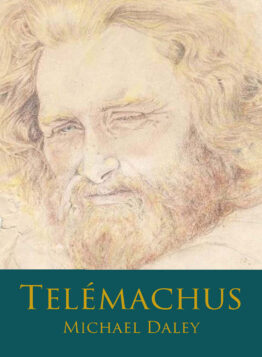
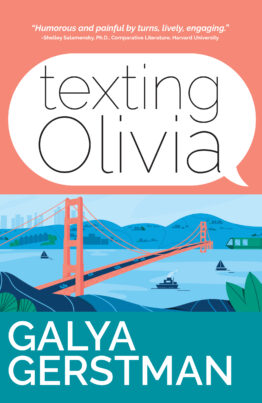

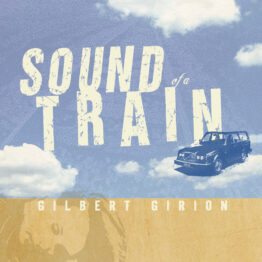
Theresa Kadair, Seattle Book Review –
But Still, Music by Anne Pitkin truly is a beautiful poetry collection. Rich in imagery, emotion, and passion, these poems are exceptionally composed. The collection is divided into two sections, both of which focus on different parts on Pitkin’s life. The first section refers to Pitkin’s life in the segregated south. Growing up middleclass in the Jim Crow era, her family, like many at the time, had employed African American maids to help clean the house and take care of the children.
One of my favorite poems in this section was titled “Southern,” where Pitkin talks about Elsie, their maid. Pitkin writes that Elsie took her on the bus, but didn’t sit with her. Elsie ate in the kitchen with the yard man, instead of at the dinner table with their family. Pitkin says that when she injured herself barefoot in their yard, she didn’t need money, food, soap, or running water; she had Elsie, who soothed her sores and provided for her needs. This poem highlights the childlike innocence of Pitkin, completely unaware of Elsie’s struggles and situation, but still full of love for her dear maid who always took care of her.
Another poem I particularly liked in this collection was titled “The First Home,” a dedication to Pitkin’s childhood friend, Michael. Full of sorrow and nostalgia, she recalls the best friend of her childhood with wonder. Inseparable in youth, Pitkin recalls their days together quarreling, playing, and climbing trees. Unfortunately, she has lost touch with Michael besides a drunken phone call saying “I love you” years ago. I loved this poem, not only because it was beautifully written, but also because it made me think of my own childhood friends and memories. Overflowing with imagery and emotion in every verse, this poem stood out to me as I deeply felt Pitkin’s grief and love for Michael.
Finally, “Afterlife” was another poem that I loved from this book. Told from Botswana in the Okavango Delta, Pitkin recalls a trip she took with a friend. Both recently divorced, they went to Botswana on their savings to see all the country has to offer. Their guide on a sort of riverboat tour tells them if they fall out the boat they will be eaten by crocodiles, which thrills them both even more. I loved this poem because the imagery of the animals and scenery was pristine. I felt transported to the banks of the Okavango Delta myself, alongside Pitkin and her friend, gazing into the water.
Overall, I really enjoyed this book and all its tales. For all readers who enjoy poetry, especially poetry full of nature and sorrow, I would recommend this book.
Diane Donovan, Sr. Reviewer, Midwest Book Review –
But Still, Music is a poetry collection that gives readers a flavor of the South. It follows Anne Pitkin’s childhood growing up as a privileged white girl and into an adulthood where she was to lose her grown child.
Segregation, distancing, and loss assume different forms in these poems, which create close connections between past and present, injecting this Southern childhood into the progression of events and future lives. “Mockingbird” is one such journey: “I heard the mockingbird/the day my mother died, and I was free/of the last attachment./That day, the sun clamored/into the windows of the mausoleum/our old home had become.”
From the dogwood tree which “shivers with the sun” during a visit back home, to a newly compromised mother, to the elusive cedar waxwing birds which so enthralled her own mother (“My mother, who tried to throttle her one life/into a shape she could live with,/loved them, their spots of red/signaling catastrophe or passion/pulsing behind the ordered world—waxwings/descending from the heavens.”), Pitkin’s evocative reflections on the sights, sounds, and connections that formed her life and continue to influence it are moments of time captured in the amber of poetic wordsmithing.
From journeys abroad to the intersection between human and natural worlds, readers receive works that resonate: “I keep coming back to it—/an empty field and the cracked
frozen stream beside the one tree/missing half its branches, casting a crooked shadow./I’m drawn by an emptiness I understand now—”
Life is a “work in progress,” with the signposts of experience and direction all around us. They are particularly haunting in this collection, which documents a long journey and its ultimate impacts and epitaphs: “There you’ve been, loves of my life./There you’ve changed me, one by one,/all of you, in the one place, bizarre music rioting,/shells and telephones whispering.”
The powerful, highly recommended collection that is But Still, Music should ideally be made part of any discussion group interested in contemporary poetry reflecting place, time, and life monuments.
It doesn’t just narrate. It sings.